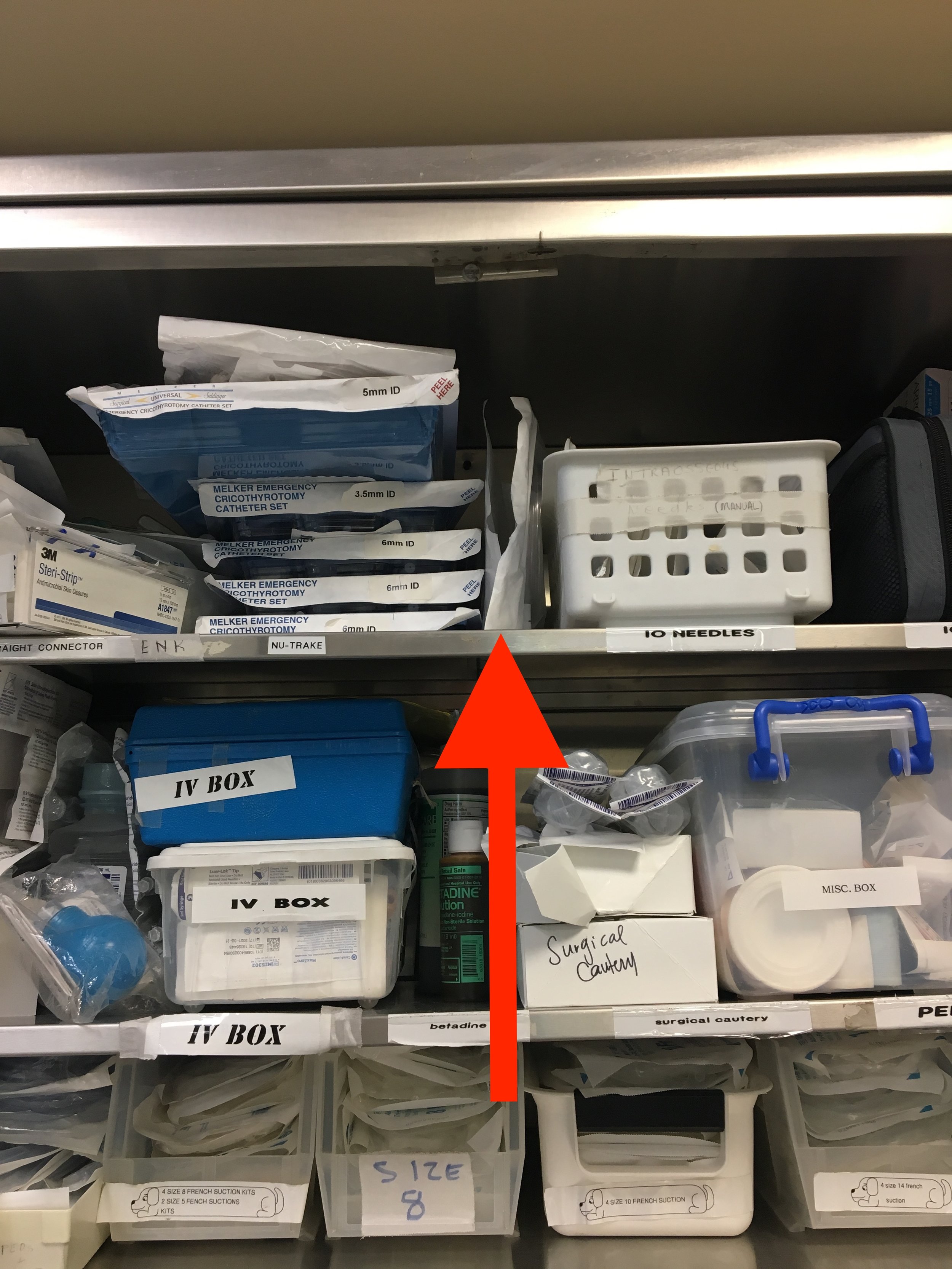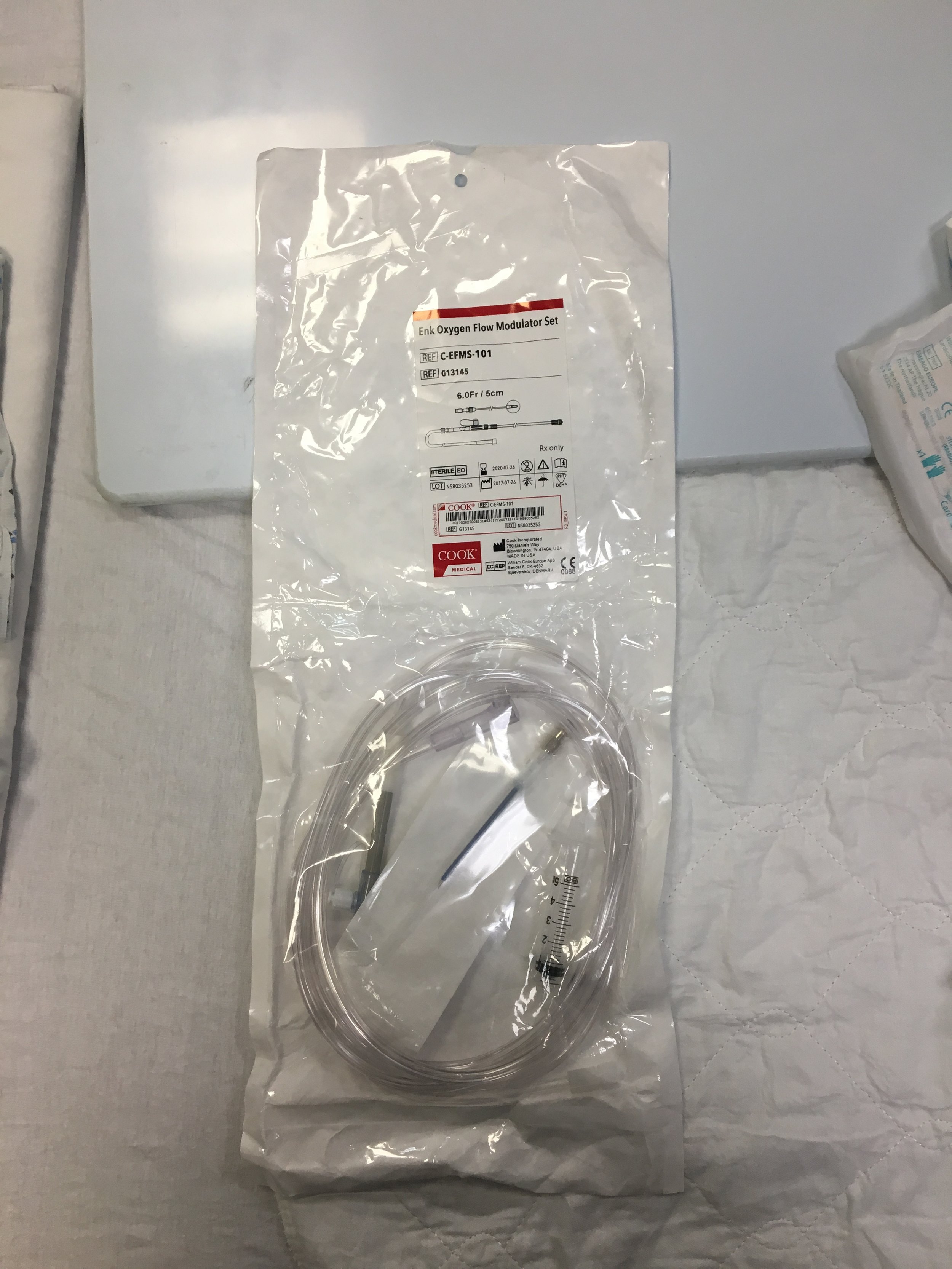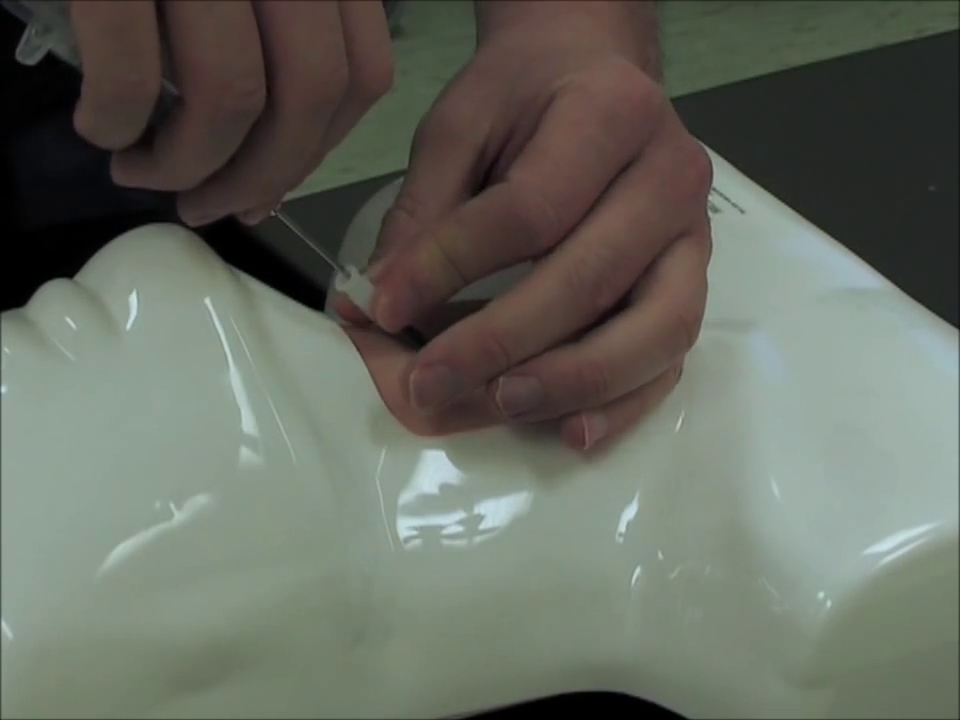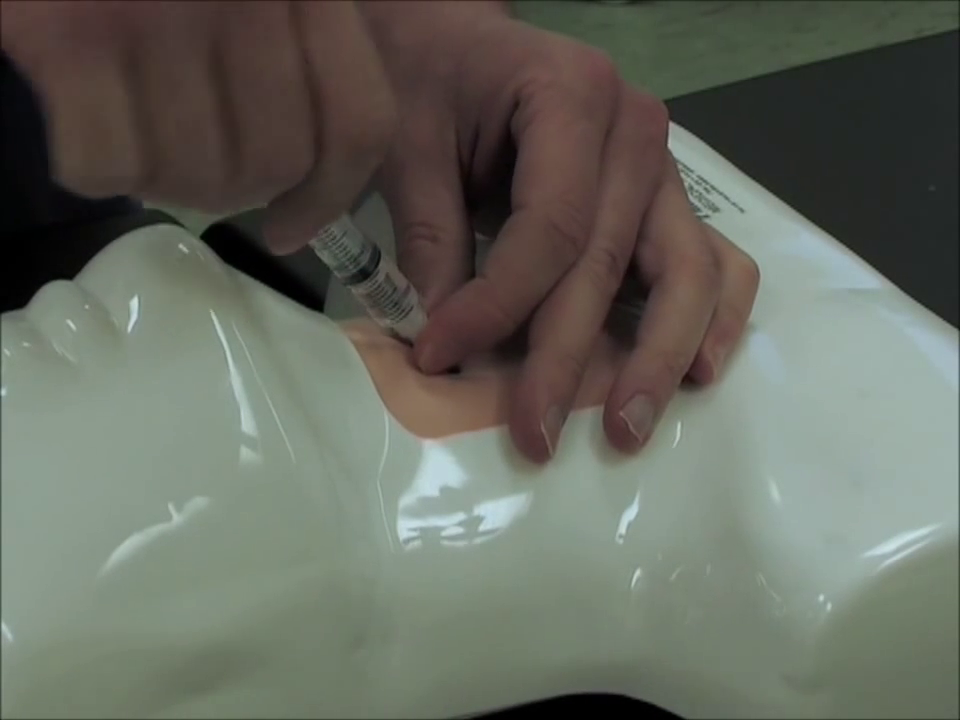Needle Cricothyroidotomy and Transtracheal Catheter Ventilation
- Used in pediatric can’t-intubate can’t-ventilate situations
- Preferred over surgical cricothyroidotomy in children <10-12 years of age
- Our kit at Maimonides is located in the Peds ED Room 30 cabinet top shelf next to the surgical cricothyroidotomy trays
Steps:
- Palpate landmarks
- Clean
- Connect tubing
- Enter at a 45 degree angle, advance while aspirating through a 5cc syrige filled with normal saline
- Stop advancing when you see bubbles
- Advance the catheter while keeping the needle stationary
- Confirm placement in the trachea by aspirating more air from the catheter directly
- Connect tubing, O2 should be at 15 L/min
- Ventilate by covering the holes for 2-4 seconds at a time allowing for longer periods of expiration (chest recoil) to decrease risk of barotrauma (some sources recommend ratio of 1:5 covered:uncovered)
Notes:
- Transtracheal catheter ventilation BUYS YOU TIME
- Transtracheal catheter “ventilation" does NOT ventilate, it only oxygenates; CO2 will build up
- ENT should perform a surgical tracheostomy or other airway secured within 30 minutes
- It is acceptable to use the spaces in between the tracheal rings if unable to identify the cricothyroid membrane or unable to achieve enough neck extension to make accessing it feasible, as is sometimes the case with infants and young children
- A similar set-up to the above kit can be improvised as follows: BVM—>ETT adapter—>3cc syringe (plunger removed)—>14 gauge angiocath —>patient’s neck
References:
- Okada Y, Ishii W, Sato N, Kotani H, Iiduka R. Management of pediatric “cannot intubate, cannot oxygenate.” Acute Medicine & Surgery. 2017;4(4):462-466. doi:10.1002/ams2.305.
- UpToDate: Needle cricothyroidotomy with percutaneous transtracheal ventilation
-
https://www.youtube.com/watch?v=kDL1Y3XlFaQ
(Video demonstration using the Cook Enk Flow Modulator kit)












